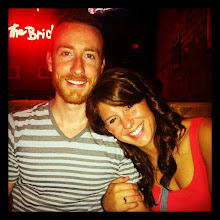Jennifer P. Brown wrote a very interesting article in the last issue of Public Relations Tactics. She related her experiences in PR to her experiences with triathlons. I found the comparisons she made to be extremely informative and interesting. I have participated in a triathlon, and plan to do another this May. She makes some fascinating points about the similarities between the two.
She begins by writing about how it matters how you train. I would say this concept is fairly simple. You would never want to show up for a triathlon unprepared and the same goes for the
PR world. Athletes who are not prepared risk injury, and unprepared PR professionals risk burning out or losing career opportunities. Brown recommends taking time to prepare by participating in professional development workshops of attending seminars to prepare for life in PR world.
Her next point is about learning from the experts. She writes about how few triathletes are experts at swimming, biking, and running. However it is good to get advice from people who do have an expertise in one of those three areas. She parallels this to PR by saying PR professionals should ask questions specific to a client or company to better understand the content which we are working in.
Her fourth and fifth points are about taking care of yourself and staying hydrated. This can easily be related to both elements because I think it's easy for people to overtrain, or over work themselves. She just elaborates on how we work best and think most effectively when we take good care of ourselves.
Next, she writes about knowing when it's time to move on, and respecting those who were there before you got there. She begins with explaining the four different triathlon distances, sprint, olympic, half iron, and iron. Most people, including myself, who decide to do a triathlon start small and work their way up. Brown says this is a good plan for triathlons, and in the PR world. Some people do start up leading departments and agencies, but their beginner mistakes are magnified.
Lesson six is about remembering to breathe. Remembering to breathe seems simple, but when you start out too fast holding our breath becomes an unconscious decision our body tends to make. The same thing is true for our profession. When we try to rush through a project our thinking suffers and our companies and clients pay the consequences.
In the seventh lesson Brown writes about every brutal uphill having a refreshing downhill. I can remember riding in my bike during my triathlon up a massive hill, but there was nothing better that finally reaching the top, and coasting down the other side. The same is true in PR. Brown says sometimes things can get crazy, but there is always a refreshing downhill. It is important for PR professional to keep their head up and keep pushing to reach the top of that hill.
The final lesson is titled, when it's no longer fun, quit (or change priorities). When a triathlete becomes so concerned with training and nutrition that it becomes an obsession the sport is no longer fun. You must return to what initially drew you into triathlons. Brown writes that our careers should be the same. She concludes by saying that our experiences should be fun, and challenging, just like a triathlon. However when it's not anymore, professionals should think about changing, whether it be in the company or the field. I think this is great advice.
